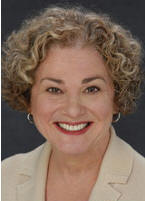Publications

|
 |

Motivation versus Manipulation
By Elayne Savage, Ph.D.
 Recent events like the fatal flight of Jessica Dubroff have brought up some painful childhood memories for me. From an early age, I was put in the spotlight by an ambitious "Stage Mom." At first she coaxed me to perform poems or skits in front of relatives whether I wanted to or not. Then she began to push me to be the "big star" she never became. And I wanted to please her. Recent events like the fatal flight of Jessica Dubroff have brought up some painful childhood memories for me. From an early age, I was put in the spotlight by an ambitious "Stage Mom." At first she coaxed me to perform poems or skits in front of relatives whether I wanted to or not. Then she began to push me to be the "big star" she never became. And I wanted to please her.
In the middle of my sixth birthday party, I got a phone call from a Washington D.C. paper, congratulating me on winning the poem-writing contest to welcome a new comic strip, "The Saint." I didn't write the poem. My mother wrote it without telling me.
She had her eye on the prize -- a chance for me to read it on the radio. Day and night she drilled that four-line poem into my head. The long streetcar ride to the radio station was a nightmare. All the way across town, she rehearsed me until I was a nervous wreck. I thought I'd never forget those words.
But I did forget them. Unfortunately I was on the air at the time. The equipment and microphones made me nervous, and I messed up. My parents acted ashamed of me and I felt I'd let them down. I would often come to see that look of disappointment on my mother's face. I came to believe nothing I did would ever be good enough. Even though she died when I was twelve, for years to come the reverberations of her voice were in the wings, reminding me, "You should have done better."
Some parents push because of fantasies of the child's talents bringing money or fame. Others push their children to live out their own unfulfilled dreams of being the "star. A child I know studied hard and made 92 per cent on a math test, yet the parent asked, "So what happened to the other eight points?" Right then and there the child quit trying. Another child freezes at bat each time dad jumps up in the stands and yells "Hit a home run for me."
Some parents have an "if it was good for me, it'll be good for you" attitude regarding challenges to their children, not realizing there might be emotional or physical differences to consider. For example, a dad was teaching his 7 year old daughter to ride her first two-wheeler. He insisted she ride the bike home, even though it meant riding down a steep hill to the park's lower level. She tried to tell him she was scared, but he didn't listen. He cajoled her, telling her he wanted to be as proud of her as his own dad had been proud of him. She gave into the pressure because she trusted him and wanted his approval. Most of all, she didn't want to let him down.
Reluctantly, she got back on the bike -- and lost control, crashing into the cyclone fence at the bottom of the hill. She had a huge goose egg, and chain links were imprinted across her forehead. At school the next day, the teacher almost called Child Protective Services to report the father for putting his daughter in danger.
Often parents are propelled to follow their own agendas, without regard for the best interest of their children. Some parents see their child's performance as a reflection of their own competence. If the child does well, the parent is proud and feels like a good parent, a successful parent. If the child falls below expectations, the parent often feels inadequate and ashamed, causing the same feelings in the child.
When children feel pushed beyond their comfortable limits, but are unable or afraid to say "no" to a parent, continued pressure by parents becomes coercive. By trying to please their parents, children lose their sense of identity. And parents who live their lives vicariously through their children are, in effect, exploiting them.
Yes, children benefit from support and encouragement to meet challenges, but there's a fine line between parental coaxing and coercion, between motivation and manipulation. And just like the down hill bike ride, things can get out of control. Young children count on the grownups knowing what's best -- sometimes this trust is betrayed.
elayne@elaynesavage.com
© Elayne Savage, Ph.D.
Permissions
Feel free to use these articles as long as you include
>>Home
|